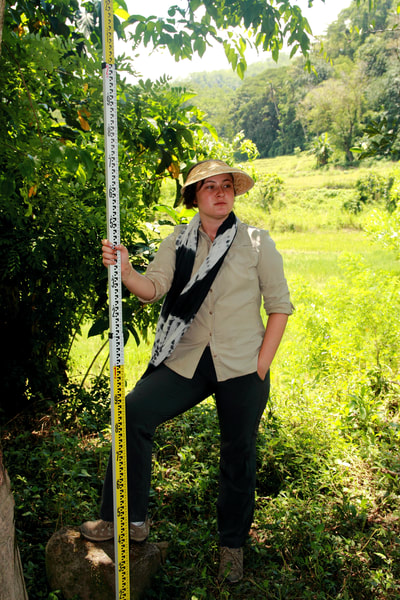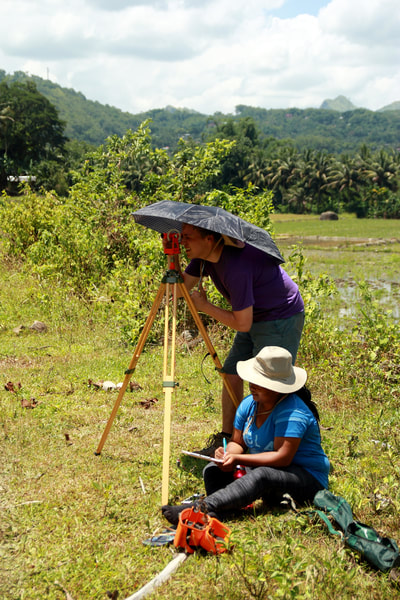Archaeological Field School
For the past 3 field seasons (2012-2014), the IAP has hosted an archaeological field school that caters to students interested in Southeast Asian archaeology. Students participating in the IAP's 5-week field school learn how to conduct archaeological field research; share the results of their studies by writing research papers and doing public presentations; and, are actively involved in public outreach activities. Activities include participation in surface mapping, archaeological excavations, processing of artifacts while in the field, ethnographic interviews, and laboratory analyses. Lectures, discussions, and one-on-one meetings are held every evening to guide students to complete their research projects.
The field school provides a venue for students to examine anthropological issues that include relationship between agricultural and irrigation systems, pathways to intensification, organizational entailments of irrigation systems and effects of colonialism on local political and economic activities. Such work informs us on the theoretical foundations of studies of agricultural systems and social organization by applying the model of self-organizing systems and provides an historico-ecological approach in the study of emergent complexity. More importantly, the Ifugao Archeological Project (IAP) has actively engaged the community, though the participation of the Save the Ifugao Terraces Movement, Inc. (SITMo) and descendant communities. Such continued engagement of stakeholders provides students with the opportunity to experience working side-by-side with community members.
The IAP field school is part of the Institute for Field Research course offering.
The field school provides a venue for students to examine anthropological issues that include relationship between agricultural and irrigation systems, pathways to intensification, organizational entailments of irrigation systems and effects of colonialism on local political and economic activities. Such work informs us on the theoretical foundations of studies of agricultural systems and social organization by applying the model of self-organizing systems and provides an historico-ecological approach in the study of emergent complexity. More importantly, the Ifugao Archeological Project (IAP) has actively engaged the community, though the participation of the Save the Ifugao Terraces Movement, Inc. (SITMo) and descendant communities. Such continued engagement of stakeholders provides students with the opportunity to experience working side-by-side with community members.
The IAP field school is part of the Institute for Field Research course offering.


